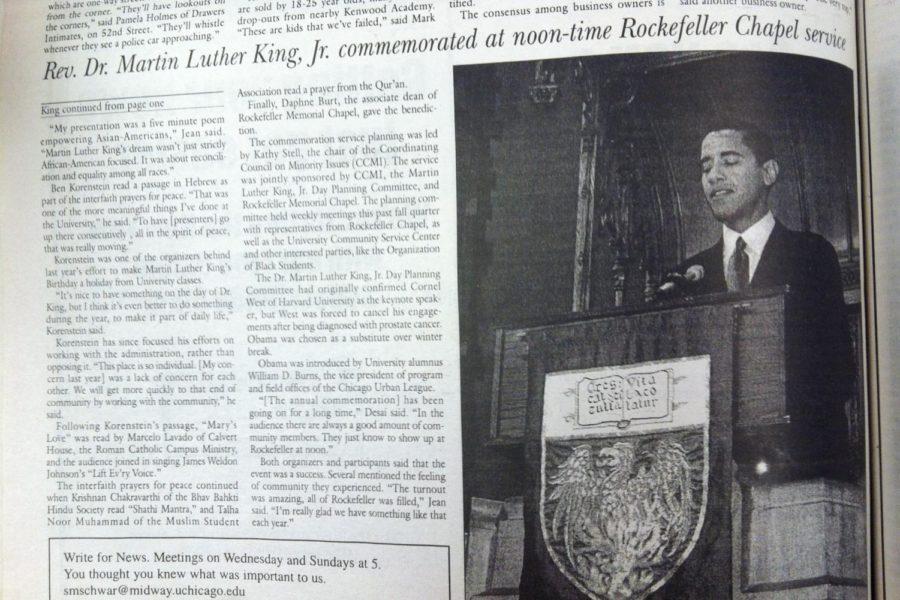In 2002, then–Illinois State Senator Barack Obama gave the keynote address during the University’s Martin Luther King, Jr. celebration. Obama, then also a senior lecturer at the Law School, was actually chosen as a fill-in for Cornel West, who was unable to give the talk after being diagnosed with prostate cancer. In the excerpts from the speech, as reported by Maroon news editor Jennifer Bussell (A.B. ’04), one can see some of the themes on which Obama would draw during his run for the White House.
Excerpts of the January 22, 2002 article are below:
Illinois State Senator Barack Obama spoke at a lunchtime commemoration of the Rev. Dr. Martin Luther King, Jr. held yesterday at Rockefeller Memorial Chapel. The service also included presentation by students from varied religious and cultural traditions.
“The greatest challenge for any King day speaker is to convince people that the message is still true, that the dream still continues to be deferred,” said Obama, a senior lecturer at the University of Chicago Law School, in his keynote address.
Obama talked about the changes brought by September 11, especially what he perceived as a different measure of greatness: community strength and equality.
“It’s important not to romanticize the movement,” Obama said. “I don’t have all the answers. Dr. King didn’t have all the answers. We must remember how much dissention and fear and betrayal had to be overcome. What kept Dr. King going was a firm set of principles for action in a state of confusion.”
The rest of Obama’s address was devoted to elaborating on the principles of empathy, responsibility for actions, and hope. According to Obama, empathy will lead to a genuine effort towards equality, and citizens will take responsibility for their actions in order to effect real change. Obama identified as Dr. King’s most lasting legacy the final principle of hope.
“That’s what I take from Dr. King’s life: a sense of hope. Hope that I might be a better man. Hope that things might be different. Hope that we will feed the hungry. Hope that we will clothe the naked. Hope that we will house the homeless. Hope that we will teach the children. Hope that we will reclaim our streets from violence,” Obama said. “I believe a righteous wind blows at our backs.”










